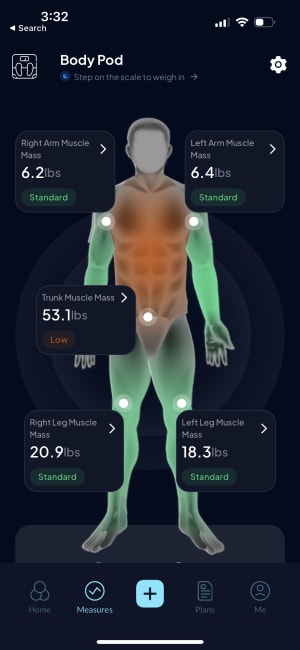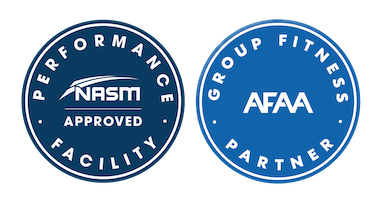
Why Weight Fluctuates in the Early Stages of Fitness — And Why That’s Okay
Starting a fitness journey is both thrilling and daunting. Occasionally, clients at the early stages of their journey will approach me, frustrated and disheartened by a small weight gain. It’s a story I know well, and your feelings are completely valid. After all, when we commit to a lifestyle of better health, we want to see progress that reflects our hard work.
If you’re feeling this way, please know that you’re not alone. Weight loss isn’t a linear process. The fat we wish to lose most of the time was accumulated over many years. While we have very clear science that we adhere to, we must remind ourselves that this process takes time. We MUST be in a caloric (energy) deficit. But even when in an energy deficit, there are other considerations to factor in. In fact, there are many reasons why the scale may go up when you first start working out. Let’s explore why this happens, and, more importantly, why it’s nothing to be discouraged by.
1. Water Retention from Muscle Repair
After we exercise, our muscles are working hard to repair and recover. During this time, they often hold onto water as they heal from the tiny tears that naturally occur when we move in new ways or increase intensity. This water retention can lead to temporary weight gain. It’s not fat or even long-term weight but a natural part of your body adapting to your new fitness routine. This can also leave us feeling swollen or bloated throughout the body.
2. Glycogen Storage in Muscles
Our muscles rely on glycogen, a stored form of glucose, for energy during workouts. As you begin exercising more, your body works to replenish these glycogen stores, which bind to water molecules. This can add a few pounds of water weight as your body adjusts. This phenomenon is well-supported by research showing that glycogen binding can lead to a temporary weight increase but is also a sign of improved energy availability and workout performance.
3. Increased Appetite
Starting a new workout routine is demanding, and it’s natural to feel hungrier as your body adjusts. Studies show that exercise can stimulate appetite, making it easy to consume slightly more calories than you burn. It’s okay to feel a bit more hunger — just be mindful of balanced, nutrient-rich meals and snacks to support your energy needs without overdoing it.
4. Inflammation from Exercise
Exercise, particularly at the beginning, can create microscopic muscle tears. This is completely normal and, in fact, beneficial in the long run. But initially, it can lead to mild inflammation and some weight gain due to increased blood flow and tissue repair. This inflammation is temporary, and once your body adapts, you’ll start seeing the results of your hard work. Reminder, for every ounce of muscle we gain, our basal metabolic rate increases so we naturally burn more energy each day simply existing.
5. Diet Adjustments and Nutrition Balance
Finding the right nutritional balance is key. Sometimes, when we start working out, we might unknowingly consume more calories than we realize. Tracking your nutrition — while being kind to yourself — can help prevent any unintended calorie surplus or deficit. Remember, healthy eating isn’t about restriction but fueling your body well.
6. Body Composition Over the Number on Scale
I know how easy it is to become fixated on the scale. But let’s take a moment to appreciate the real changes happening within your body. You might be building muscle, which is a fantastic transformation that positively affects your metabolism and strength. Even if the scale doesn’t immediately show a drop, other indicators, like how your clothes fit, will reveal the benefits of your hard work. Focus on percentage of body fat, over the number on the scale. Muscle and fat are different tissue, and muscle won’t turn to fat and fat won’t turn to muscle. If you lose one pound of fat and replace it with one pound of muscle, you have lost no weight on the scale, but you have made great progress that will aid in your long-term health goals.
The Bigger Picture: Hydration and Progress Monitoring
Staying hydrated is crucial. When our bodies don’t get enough water, they hold on to what they have, leading to water retention. Drinking water can reduce bloating and help your body manage water balance better. Remember to also check in with other measures of progress, like increased energy, strength, or improved mood. These are signs of transformation that aren’t always reflected in numbers, and sometimes our most important metrics to measure by. Use a scale that tracks data points such as percentage of body fat, but also be mindful that this technology can be highly inaccurate, so if the data negatively impacts you, stop focusing on it, and focus on the day to day disciplines that will get you to your goal. We understand macro tracking can be cumbersome and time consuming, but it will teach you a skill set you will have for the rest of your life. When done consistently, we can make data driven decisions on what adjustments should be made. The goal is to help you develop intuitive eating habits, while also ensuring you stay within a caloric deficit.
Science Supports Patience and Perseverance
Studies consistently show that changes in body weight due to water retention, glycogen storage, and muscle gain are normal. Research by the American Council on Exercise highlights how temporary water retention plays a role in initial weight gain for many individuals, especially during the first few weeks of a workout routine. The National Institutes of Health also emphasizes body composition over scale weight, noting that muscle gain can contribute to long-term metabolic improvement.
In closing, this is a lifelong journey we are on. One thing we can all agree upon, is that not exercising and eating whatever we want will not help us in our long-term goals. So, we must not get discouraged when things don’t go exactly as we expected. This is a long game, and we should all be exercising regularly and eating nutrient dense foods for the rest of our lives, until the Good Lord calls us home. Focus on the positives and understand that this process takes time. The fact that you are putting in any effort, is better off for you than when you were doing nothing. Trust the process but remember that your adherence is the key here. Simply put, you get out what you put in. Follow a plan that is trusted by science and stay the course. True Body Composition change takes years in some occasions, and the longer you have been out of shape, the longer it will take you to get into shape.
Remember, if you ever need a listening ear or want to review your nutrition or progress, you have a team here to support you every step of the way. This journey takes time, focus, and patience — but I promise, every bit of effort you’re putting in is worth it. From a cellular level on out, you are healthier if you are adhering to a fitness and nutrition program. We believe in you and are here to support every step of the way.

